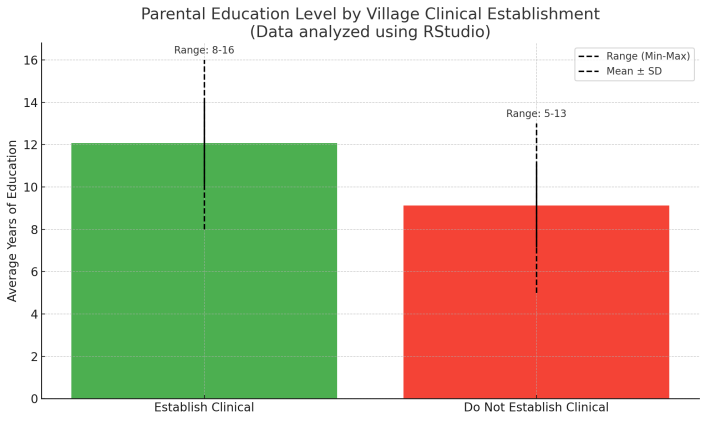Volume 107
Published on August 2025Volume title: Proceedings of ICILLP 2025 Symposium: Property Law and Blockchain Applications in International Law and Legal Policy
This paper examines the operation and shortcomings of the common law forfeiture rule in Victoria, Australia, which precludes individuals from inheriting the estate of someone they have unlawfully killed. While the rule is grounded in a strong moral principle—that one should not benefit from their own wrongdoing—it has proven to be rigid and overly simplistic in complex succession cases. The paper contrasts the Victorian approach with that of New South Wales, where the Forfeiture Act 1995 provides courts with statutory discretion to grant relief based on contextual factors such as intent, relationship with the deceased, and mitigating circumstances. Through a comparative analysis of key cases and statutory frameworks, the study argues that Victoria’s exclusive reliance on common law is no longer tenable. It contends that introducing a statutory model, akin to the New South Wales regime, would enhance both fairness and clarity in the administration of succession law. The paper concludes that legal reform is necessary for Victoria to respond more justly to morally complex scenarios without abandoning the deterrent effect of the forfeiture rule.

 View pdf
View pdf


Chomsky's media control theory sharply criticizes the American capitalist system and profoundly reveals the ruling class’s control of the media and its impact on the American domestic even the contemporary international political situation. Starting from Chomsky's theory of media control, the article explains how people became the “spectators of democracy” under the influence of manufacturing consent and propaganda model, which violates the nature of human pursuit of freedom. The paper criticizes U.S. for interfering in international affairs for the sake of national interests through Chomsky’s study on terrorism and a large number of examples. Throughout the study of media control theory from various angles, this paper reveals the fact that the United States uses the media to deceive the public and control their thoughts under the veil of freedom and democracy, so that the public can understand the double standard behavior of counter-terrorism and other foreign policies that serve the interests of the American ruling class. The paper warns people to reflect on the use of the media and appeal the public to pursue the objective truth. It also helps people, to a certain extent, break out of the media’s control of their minds and boldly pursue freedom and happiness.

 View pdf
View pdf


In the context of globalization and the profound integration of industrial chains, cross-border monopolistic behaviors have rendered the conflicts over anti-monopoly jurisdiction among countries increasingly prominent. This study, from the vantage point of enhancing the extraterritorial application system of China's Anti-Monopoly Law, conducts a systematic analysis of the underlying causes of such jurisdictional conflicts among countries, international coordination approaches, as well as the challenges China encounters in the practice of anti-monopoly jurisdiction.The research reveals that the core of jurisdictional conflicts lies in the interplay between national sovereignty and interests. Relying on the single entity principle and the effects principle, countries have been consistently expanding their extraterritorial jurisdiction, thereby giving rise to jurisdictional conflicts and the predicament of asymmetric regulation. China faces three major deficiencies: unclear extraterritorial application criteria, the absence of coordination mechanisms, and being at a disadvantage in the rules arena due to other countries' extraterritorial application based on the effects principle.Consequently, this paper innovatively puts forward a “dual-track coordination mechanism”. Internally, it aims to clarify relevant rules, while externally, it advocates the practice of international comity and the exercise of reasonable jurisdiction.

 View pdf
View pdf


Although Macau has laws such as the Labor Relations Law and the Domestic Violence Prevention and Control Law to protect people’s basic rights and interests, it lacks a more professional Human Rights Due Diligence (HRDD) Law. Macau bus drivers, who play an important role in Macau's tourism industry, suffer from emotional exhaustion due to long working hours, a single salary structure and management's tendency to take punitive measures. This research examines the application of Macau's HRDD legislation, specifically analyzing its role in detecting, addressing, and reducing workplace rights violations within the public transportation sector. The five steps of HRDD include: human rights impact assessment, integration of assessment outcomes with corporate processes, publication of policy commitments, establishment of internal remedial mechanisms, tracking of response measures and external communication. This paper examines the HRDD legislation in both France and Germany, applying the five-step HRDD framework to address human rights concerns among Macau's bus drivers.

 View pdf
View pdf


The globalization of human rights risks in supply chains has precipitated significant divergence in mandatory Human Rights Due Diligence (HRDD) legislation across nations. This study uses a most-similar case design to compare legislative frameworks in France, Germany, and the US, analyzing differences in liability logic, enforcement mechanisms, and remedial effectiveness. Key findings show legal traditions set liability foundations, and business-civil society bargaining intensity determines legislative stringency. The core contribution shows a positive link between "structural capacity to bypass corporate law barriers" and legislative effectiveness. France rebuilds corporate purpose via civil joint liability, Germany maintains limited liability through administrative compliance, and the United States stays stuck in greenwashing due to shareholder primacy. This research proposes differentiated governance pathways, enhancing judicial activism in civil law, exploring equity innovations in common law, and establishing an transnational tort database certified by International Labour Organization (ILO). The study offers a layered framework for localizing UNGPs and adaptive solutions for emerging economies.

 View pdf
View pdf



This study investigates the impact of new Rural Health Centers (NRHCs) on parents' vaccination willingness in rural Shaanxi Province, China, through a comparative analysis of 100 randomly sampled villages, of which 50 had established NRHCs and the other 50 had not been established. Parents were surveyed using the Children’s Vaccination Intentions Survey Scale (PACV) to analyze their differences in cognition, attitude and behavioral tendencies. The research results show that among the villages with established NRHCs, parents' willingness to vaccinate children is significantly higher than those in unestablished villages (t=4.56, p<0.05), indicating that the construction and operation of NRHCs have a positive role in enhancing parents' willingness to vaccinate. This discovery serves as a significant reference for the development of public health policies. It is recommended that policymakers promote the construction of NRHCs in more villages to optimize resource allocation, improve children's vaccination rate, and thus promote community health, reduce medical expenditures, and improve overall social welfare.

 View pdf
View pdf


This article studies the systematic breakdown of labour rights protection in developing countries under globalization and unveils the mechanisms behind this breakdown by examining three structural dilemmas. It finds that national regulatory capacity is locked into a vicious circle of scarce resources and ineffective enforcement; legal systems institutionalise exploitation via biased rules; and capital in Global Value Chains (GVCs) undermines host-state sovereignty through pricing power, regulatory races to the bottom, and misallocation of resources. These three interlocking mechanisms cause the breakdown of labour rights. In reaction, the Human Rights Due Diligence (HRDD) mechanism seeks to overcome these dilemmas through parallel governance, transnational litigation, and piercing corporate liability. Yet it succumbs to a neocolonial paradox. Northern-dominated standard-setting persists alongside compensation cycles rooted in colonial history and geographically selective remedies. These practices collectively perpetuate global power asymmetries. The conclusion contends that although HRDD improves governance effectiveness to some extent, it does not break free from colonial logic. Global labour rights protection must transcend the current capital-centred paradigm.

 View pdf
View pdf



Against the backdrop of global efforts to address climate change and systemic change, energy conservation and emission reduction in the construction industry are of paramount importance. This study focuses on comparing ceramic gel insulation materials with traditional building insulation materials across multiple dimensions: material production, construction processes, usage phases, and the entire lifecycle. The results reveal that producing 10 million square meters of ceramic gel insulation materials reduces aggregate energy consumption by approximately 70%, and lowers carbon emissions by about 1.19×10⁸ kg compared to producing the equivalent amount of traditional insulation mortar. During construction, the application time is shortened by approximately 70%, significantly reducing energy consumption and carbon emissions. In the usage phase, this material reduces energy loss by 30%. Over the entire lifecycle, the energy efficiency of ceramic gel insulation materials can be improved by 10-30%, and their overall carbon emissions are much lower than those of traditional building insulation materials. The findings of this study provide a scientific basis for the construction industry when selecting low-carbon insulation materials, promoting the industry's green and sustainable development.

 View pdf
View pdf


In the context of globalization, multinational corporations significantly impact human rights, with violations increasingly scrutinized, especially in developing countries. These issues stem from power imbalances, where corporations exploit economic and legal advantages to evade responsibility. The current Human Rights Due Diligence (HRDD) framework attempts to address these through negotiation clauses but lacks mandatory enforcement mechanisms, leading to selective compliance and inadequate remedies for victims. This study addresses the core issue of overcoming "pseudo-negotiation" caused by resource inequality by introducing mandatory negotiation requirements. It explores mechanism designs to achieve substantive equality, ensuring victims receive fair treatment and effective compensation. This approach fills a research gap in HRDD implementation and shifts dispute resolution from "compliance checks" to "rights remedies." The study analyzes the deficiencies of the existing legal framework, using comparative studies, case analysis, and institutional design to propose an innovative mandatory negotiation mechanism. The aim is to provide actionable legal advice for multinational corporations' HRDD, promoting global human rights protection and offering theoretical and practical guidance for policymakers to enhance the legal framework.

 View pdf
View pdf


China's Company Law introduced the rule of corporate opportunity in 2005. The 2024 revision (new Art. 183) refined the rule, yet its language remains loose, giving rise to inconsistent adjudication, intricate tests, and an unbalanced burden of proof. Precisely identifying usurpation is vital to protecting corporate assets and market integrity. This paper discusses a "two-step" logical hierarchical framework based on the doctrine of corporate interest through case analysis and literature research. The framework aims to clarify the elements of the foundation and core layers for the determination of corporate opportunity and the key elements for the characterization of usurpation. The study shows that applying the "two-step" logic expands the scope of subject matter to include controlling shareholders and beneficial owners, and adds "express corporate refusal" as an exception. Although the "two-step" logic needs to be improved, it can reduce the different judgments in the same case, lay the foundation for the formation of guiding cases, and help judicial practice and corporate governance.

 View pdf
View pdf



